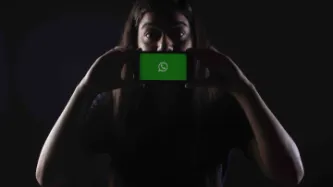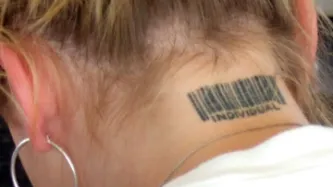Search
Content type: Examples
As inmates are released from prison in order to mitigate the public health and humanitarian threat posed by the coronavirus poses to a confined population, Minneapolis-based Precision Kiosk Technologies is highlighting its AB Kiosks, which can be used to replace riskier face-to-face meetings with electronic check-ins for newly-released inmates and those on probation, who can use the kiosks to set schedules and trigger reminder texts and emails. The kiosks use fingerprint recognition to verify…
Content type: Examples
The consumer and market trends insight company StatSocial announced Crisis Insights, which it claims tracks rapidly changing consumer audience dynamics to help US brands and CMOs respond effectively to the ongoing coronavirus epidemic and economic slowdown. StatSocial's Silhouette social data platform monitors and analyses more than 1.3 billion social accounts covering more than 70% of US households. Crisis Insights is intended to identify the changing dynamics of customers and consumers who…
Content type: Examples
The Argentinian Ministry of Transport, working with the state-owned satellite company ARSAT and the telecoms regulator,ENACOM, proposed to the Executive on 31 March 2020 a platform that uses cell tower data to track people on public transport and ensure they comply with quarantine laws. By 28 March, the Ministry of Security had detained 13,006 people for violating the rules. The government believes that although compliance is high, it will deteriorate if quarantine is extended much longer…
Content type: Examples
The San Francisco-based big data company Grandata has created a heat map to show which areas of Argentina are best complying with the quarantine lockdown. Grandata used an "anonymised" dataset collected from apps that provide third parties with geolocation information. The heat map shows if an individual has moved more than 100 meters from the place where they spend most of their time, apparently without taking into account the socio-economic contexts of different cities, where individuals…
Content type: Examples
The whistleblower said they were unable to find any legitimate reason for the high volume of the requests for location information. “There is no other explanation, no other technical reason to do this. Saudi Arabia is weaponising mobile technologies,” the whistleblower claimed.
The data leaked by the whistleblower was also seen by telecommunications and security experts, who confirmed they too believed it was indicative of a surveillance campaign by Saudi Arabia.
The data shows requests for…
Content type: Examples
In a widely circulated animated heat map, the geospatial visualisation company Tectonix GEO in partnership with the location technology company X-Mode used the secondary locations of anonymised mobile devices that were active on a single beach in in Ft Lauderdale, FL during spring break to show how the beach-goers fanned out across the US afterwards, potentially carrying infection with them. Although the visualisation was instructive in showing how contagion spreads, it was unclear whether any…
Content type: Examples
Argentina's Public Prosecutor's Office will start installing an app on the smartphones of those who violate government-ordered quarantine in the cities of Santa Fé and Rosario. The app will be installed by the province's Criminal Investigation Agency to track those who are under criminal investigation for violating quarantine. The app will send reports to the the MPA investigation office and coordinated by the Attorney General's Office. Individuals will be required to sign a document…
Content type: Examples
On March 23, Argentina's immigration agency, Dirección Nacional de Migraciones (DNM), announced that anyone arriving in the country would be required to install the free COVID-19 Ministry of Health app on their phone for 14 days to ensure they comply with quarantine rules in order to protect the population. The Office of the Chief of Staff had instructed the DNM to adopt this policy when it launched the app, also on March 23. Since launch, the number of unnecessary permissions the app requests…
Content type: Examples
After 195 US citizens were repatriated from Wuhan, China in January they were placed in quarantine without warning in a cordoned-off section of the Air Force Research Base in California's Mojave Desert. The legal position of this and other similar quarantines is unclear, as the Centers for Disease Control and Prevention have tried avoid judicial review of their actions, which they claim fall under regulations issued in January 2017.
Source: https://papersplease.org/wp/2020/01/31/can-…
Content type: Examples
The US Department of Justice has asked Congress for the ability to ask chief judges to detain people indefinitely without trial during emergencies as one of a number of new powers the department is seeking during the coronavirus crisis. The DoJ also wants Congress to pause the statute of limitations for criminal investigations during national emergencies and for one year following their end, and wishes to change the Federal Rules of Criminal Procedure in some cases to expand the use of…
Content type: Examples
The self-testing web app issued by Argentina's Secretariat of Public Innovation asks for national ID number, email and phone as mandatory fields in order to submit the test. The Android version requires numerous permissions: calendar, contacts, geolocation data (both network-based and GPS), microphone, camera, full network access; change audio settings, run at startup; draw over other apps, prevent device from sleeping.
Sources:
https://www.argentina.gob.ar/coronavirus/app
https://play.…
Content type: Examples
The free app Testeate, developed by the company Adrómeda in collaboration with the Association of Information and Communication Technologies of Mar del Plata (ATICMA) and the Chamber of Software and Computer Services Companies of Argentina (CESSI) and launched in the Municipality of General Pueyrredón on March 26, is intended to enable direct information exchange between Argentina's National Ministry of Health and the population by offering constantly updated information in any city and…
Content type: Examples
At the MIT Media lab, Ramesh Raskar is leading a team that includes software engineers at companies such as Facebook and Uber to develop the free and open source app Private Kit: Safe Paths. The app is intended to share encrypted information between phones in the network without going through a central authority so that individuals can see if they've come in contact with someone carrying the coronavirus. Anyone who tests positive can choose to share location data with health officials, who can…
Content type: Examples
Kinsa Health, which has sold or given away more than 1 million internet-connected thermometers to household covering 2 million people, finds that the maps it creates showing the difference between expected (based on years of data the company has collected) and reported levels of fever may act as an early warning system for spreading illness. Abut 90% of COVID-19 patients have fever. The company has posted its data and maps to medRxiv, and also to a new website it has built.
Source: https…
Content type: Examples
As governments look into surveillance, geolocation and biometric facial recognition to contain the coronavirus, even if they violate user data privacy, the controversial facial recognition company Clearview AI is allegedly negotiating a partnership with state agencies to monitor infected people and the individuals with whom they have interacted. The data mining company Palantir is already collaborating with the CDC and NIH, while the White House convened a task force of technology companies to…
Content type: Examples
US government agencies are considering a range of tracking and surveillance technologies as part of efforts to control the spread of the novel coronavirus. These include: geolocation tracking and facial recognition systems to analyse photos, both to enable contact tracing. Palantir is working with the Centers for Disease Control and Prevention to model the virus outbreak, and other companies that scrape public social media data have contracts in place with CDC and the National Institutes of…
Content type: Examples
Athena Security, which previously sold a system claiming to detect weapons in video feeds, is marketing "artificially intelligent thermal cameras" that the company claims can detect fevers and send an alert to the client that they may be carrying the coronavirus, and claims that its Fever Detection CPVID19 Screening System is being rolled out at customer locations including government agencies, airports, and Fortune 500 companies. The company claims that its software is accurate to within half…
Content type: Examples
In mid-February the Federal Register published new CDC rules, which came into interim effect on February 7, under which airlines are required to collect the name and contact information of all passengers and crew arriving in the United States on international flights, and to transmit this information to the U.S. Centers for Disease Control and Prevention within 24 hours of an order to do so. Written comments were accepted until March 13. In response, EFF asked CDC to explain what it will…
Content type: Examples
Despite warnings that airport screening will only delay but not stop disease outbreaks, in early March US vice-president Mike Pence pledged "100% screening" on direct flights from Italy and South Korea to the United States.
Source: https://www.sciencemag.org/news/2020/03/why-airport-screening-wont-stop-spread-coronavirus
Content type: Examples
Frisco, TX-based MTX Group is collaborating with the New York State Department of Health in deploying a coronavirus-monitoring and messaging system enabling New York State to monitor travellers, physicians, and others who come into close contact with anyone with symptoms. The application asks users to check-in through a "digital quarantine", and then sends them a daily alert asking if they have any illness or symptoms. These can then be tracked and sent to health officials. MTX was in…
Content type: Examples
A group of independent developers in Argentina started CoTrack, a public crowdsourced effort to develop an app to track and slow the spread of the virus. CoTrack registers each user's geographic movements and looks for times when they are close to people who have been diagnosed with COVID-19. When there is a confirmed case, a user who has the app can share their data with the community so others can automatically be notified that they should take precautions. The Ministry of Health for the area…
Content type: Examples
An Argentinian crowdsourcing website is collecting information on flights with passengers who were reported as testing positive for COVID-19. Users are asked to enter their email address and the date, airline, and flight number, and tick a box to indicate that someone on their flight was infected. No information is provided on who operates the site, but the terms and conditions indicate that it uses open data flows alongside the collected data.
Source: http://www.checkmyvirusrisk.com/CO/…
Content type: Examples
Three years ago, the Alphabet subsidiary Verily developed a software platform, Project Baseline, to run clinical trials on a group of volunteers who agree to share their medical data with a group of researchers at pharmaceutical companies and research hospitals. In early March, Verily began considering whether and how the software could be used to help detect COVID-19. To date, the site is in beta mode, and consists of a questionnaire that links local Bay Area residents to three testing sites.…
Content type: Case Study
In 2015, a man in Connecticut was charged with murdering his wife based on evidence from her Fitbit. Richard Dabate, the accused, told the police that a masked assailant came into the couple’s suburban home at around 9am on 23 December 2015, overpowering Dabate then shooting his wife as she returned through the garage.
However, the victim’s fitness tracker told a different story. According to data from the device, which uses a digital pedometer to track the wearer’s steps, Dabate’s wife was…
Content type: Case Study
In early May 2019, it was revealed that a spyware, exploiting a vulnerability in Facebook’s WhatsApp messaging app, had been installed onto Android and iOS phones. The spyware could be used to turn on the camera and mic of the targeted phones and collect emails, messages, and location data. Citizen Lab, the organization that discovered the vulnerability, said that the spyware was being used to target journalists and human rights advocates in different countries around the world. The spyware…
Content type: News & Analysis
Maddie Stone, formally a Senior reverse engineer and tech lead on the Android security team, shockingly revealed a number of examples of how pre-installed apps on Android devices can undermine users privacy and security in her BlackHat USA talk in August 2019. The video of the talk only recently became available to the public in late December 2019.
The apps in question come preloaded on a device when it is purchased and often can't be removed. Stone reveals a litany of abuses carried out by…
Content type: Case Study
Slavery, servitude, and forced labour are absolutely forbidden today, as is anything that seeks to undermine or limit that restriction. The horrific reality, however, is that modern slavery remains a significant global issue.
Human trafficking is one form of modern slavery. It involves the recruitment, harbouring or transporting of people into a situation of exploitation through the use of violence, deception or coercion and forcing them to work against their will.
Human traffickers do…
Content type: Examples
A woman was killed by a spear to the chest at her home in Hallandale Beache, Florida, north of Miami, in July. Witness "Alexa" has been called yet another time to give evidence and solve the mystery. The police is hoping that the smart assistance Amazon Echo, known as Alexa, was accidentally activated and recorded key moments of the murder. “It is believed that evidence of crimes, audio recordings capturing the attack on victim Silvia Crespo that occurred in the main bedroom … may be found on…
Content type: Examples
Bethany Christian Services, an international pregnancy support and adoption agency, is launching a programme with Copley Advertising to send targeted ads to individuals visiting Planned Parenthood clinics, abortion clinics, methadone clinics and high-risk areas (AHPA). The targeting will be done through the use of geo fencing based on smartphones located within the selected locations.
Source: https://www.liveaction.org/news//adoption-agency-send-pro-life-ads-smartphones-inside-abortion-…
Content type: Examples
In 2018, Brian Hofer, the chair of Oakland's Privacy Advisory Commission, filed suit after police wrongfully stopped him at gunpoint because their automated license plate recognition system, supplied by Vigilant Solutions, indicated that the rental car he was driving had been stolen. The car had in fact been stolen some months earlier, but been recovered. Despite such errors, police claim that the technology has helped reduce crime, identify stolen vehicles, and identify and arrest suspects.…





